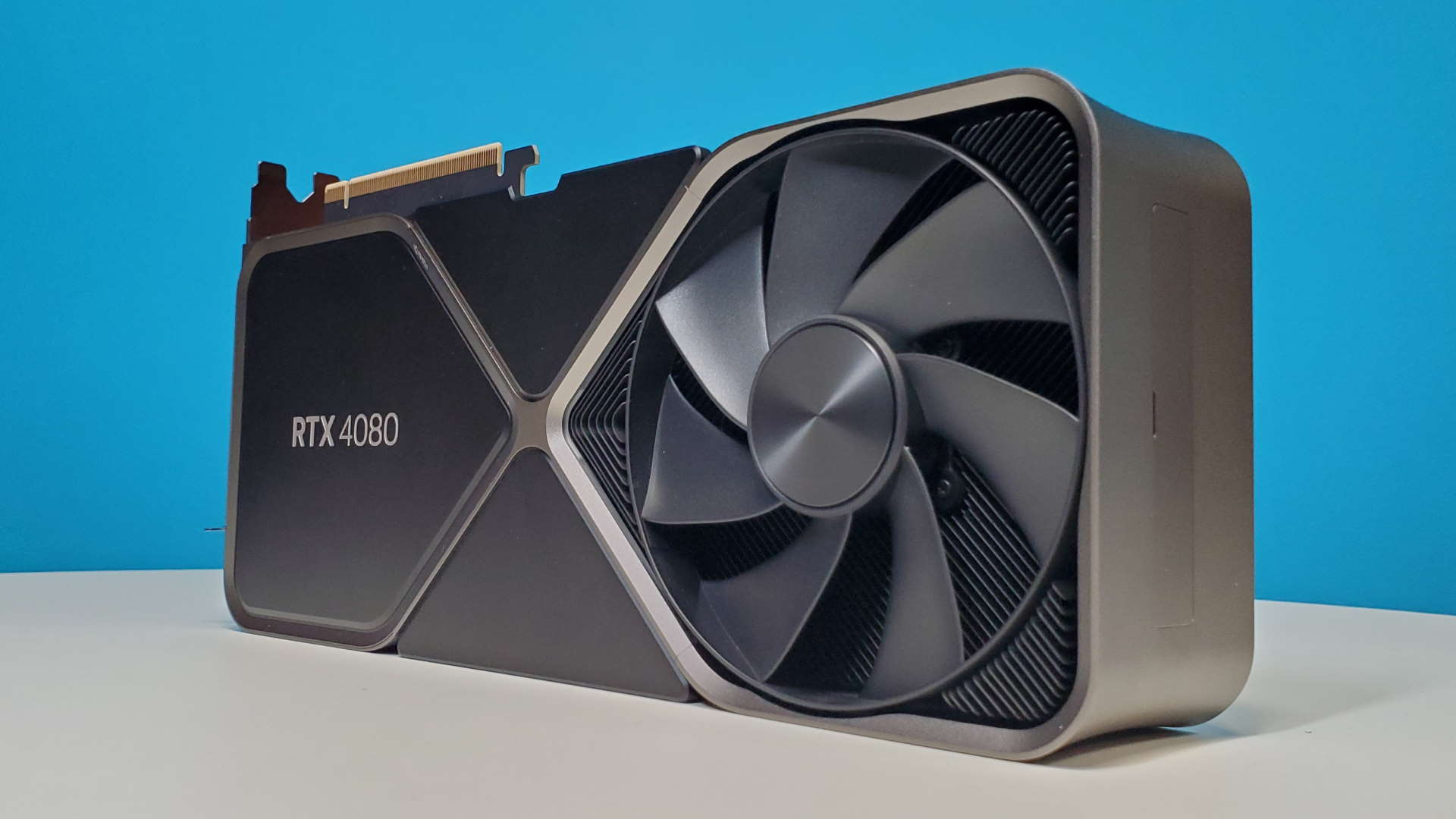RTX 4080 and 4070 Ti are reportedly getting a production freeze to make room for the forthcoming Super variants, while the RTX 4070 will soldier on
Meanwhile, there's still no sign of a desktop RTX 4050 for the sub-$200 market.

With less than two months before the expected announcement of the RTX 40-series Super models, it's being reported that Nvidia is putting a halt to the RTX 4080 and RTX 4070 Ti lines. The idea is, of course, that these will be superseded by the 4080 Super and the delightfully named 4070 Ti Super.
As spotted over at Videocardz, aggregation service Board Channels is claiming that Nvidia has stopped the mass production of the GeForce RTX 4080 and the RTX 4070 Ti, the two most powerful cards in the RTX 40-series portfolio that you can actually buy without having to rob a bank or three.
Apparently, the distribution of GPUs for those models is now complete and third-party vendors, such as Asus, Gigabyte, Zotac, et al won't be making any additional inventory. It's all down to the much-rumored RTX 4080 Super and RTX 4070 Ti Super, which are expected to be announced by Nvidia at the CES 2024 event, in January.
The standard RTX 4070, though, is expected to stay in production, and if all of this turns out to be the case, next year's Nvidia desktop graphics card line-up will go as follows: RTX 4090, 4080 Super, 4070 Ti Super, 4070 Super, 4070, 4060 Ti, and the RTX 4060.
So it looks like we're going to get two direct replacements and just one completely new model. As of yet, there's been no talk of an RTX 4060 Super, which is a little surprising as the RTX 4060 Ti card uses a version of the AD106 GPU with two SM blocks disabled.
This means there's certainly scope for a beefier 4060, so we may see one much later in the year, as a direct replacement for the Ti.
To me, the line-up just doesn't look complete and I can't help but wonder if we'll ever see a desktop RTX 4050. With the standard RTX 4060 using a full AD107 chip, its MSRP of $299 suggests that there's scope for Nvidia to use cut-down GPUs for an even cheaper RTX 4050.
The biggest gaming news, reviews and hardware deals
Keep up to date with the most important stories and the best deals, as picked by the PC Gamer team.
This year's Black Friday and Cyber Monday sales have shown that sub-$200 cards are still in high demand, with Intel's Arc A750 frequently selling out at retailers when it was on sale for around $180-190. Of course, the profit margins on such graphics cards are pretty small so there's probably not much incentive for Nvidia or board partners to go down that route.

Best CPU for gaming: The top chips from Intel and AMD.
Best gaming motherboard: The right boards.
Best graphics card: Your perfect pixel-pusher awaits.
Best SSD for gaming: Get into the game ahead of the rest.
The RTX 4050 does exist in laptops, albeit in a pretty mutilated state: Half the L2 cache is disabled, along with one of the memory interfaces leaving behind a 96-bit memory bus and 6GB of VRAM. Not exactly cutting-edge for today's games.
But a 128-bit version of the same chip, even equipped with slow GDDR6, would make a nice enough el-cheapo graphics card. Given that AMD hasn't bothered to replace its Radeon RX 6400, the lowliest GPU in the RDNA 2 family, it does look like only Intel is still willing to release something in the real budget segment.
It will be a good while before Nvidia releases its RTX 50-series of graphics cards (probably around September 2024, if previous generation gaps are anything to go by), which gives it lots more time to release all kinds of Frankenstein models, just as we saw with Ampere. Don't be surprised if we end up seeing a 12GB RTX 4060 Super or a basic RTX 4070 using a mangled AD103 die.
I suspect few, if any, of them will be really cheap, though.

Nick, gaming, and computers all first met in 1981, with the love affair starting on a Sinclair ZX81 in kit form and a book on ZX Basic. He ended up becoming a physics and IT teacher, but by the late 1990s decided it was time to cut his teeth writing for a long defunct UK tech site. He went on to do the same at Madonion, helping to write the help files for 3DMark and PCMark. After a short stint working at Beyond3D.com, Nick joined Futuremark (MadOnion rebranded) full-time, as editor-in-chief for its gaming and hardware section, YouGamers. After the site shutdown, he became an engineering and computing lecturer for many years, but missed the writing bug. Cue four years at TechSpot.com and over 100 long articles on anything and everything. He freely admits to being far too obsessed with GPUs and open world grindy RPGs, but who isn't these days?

